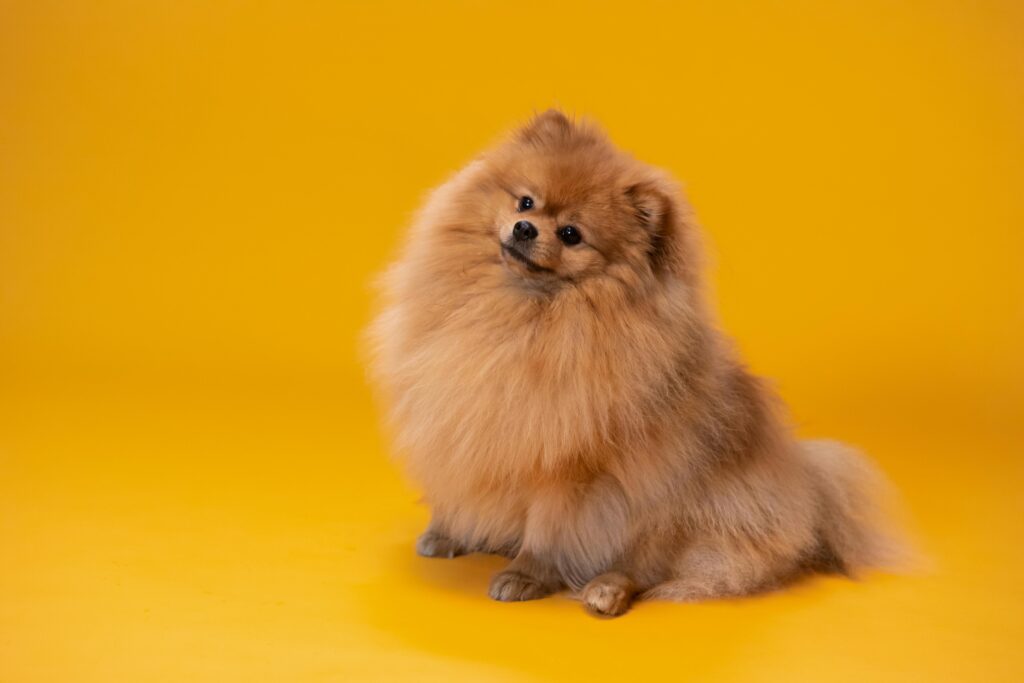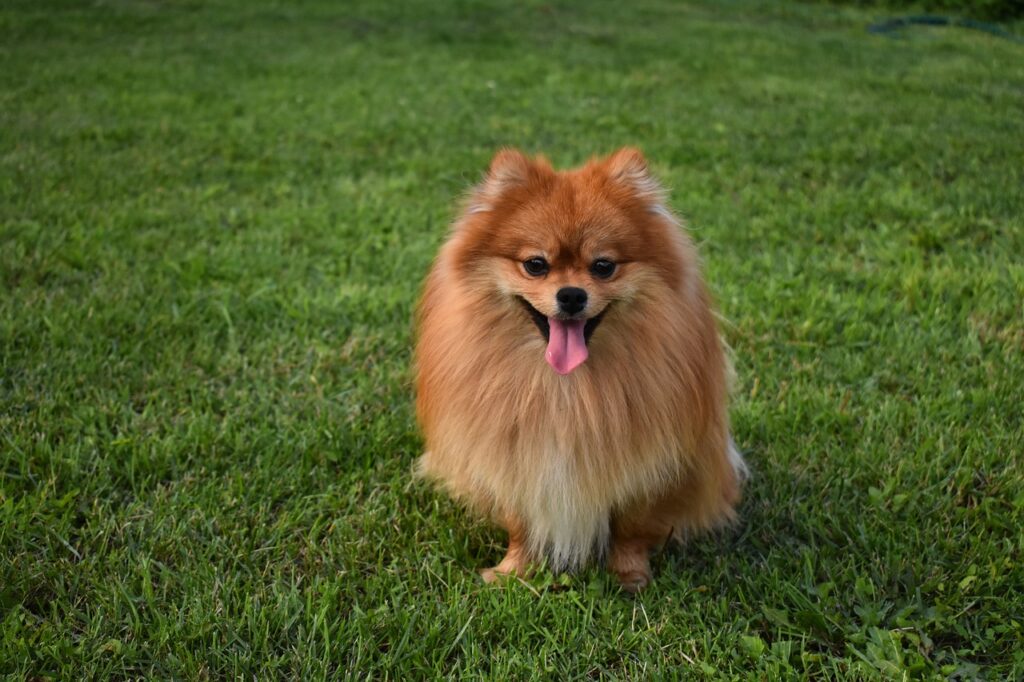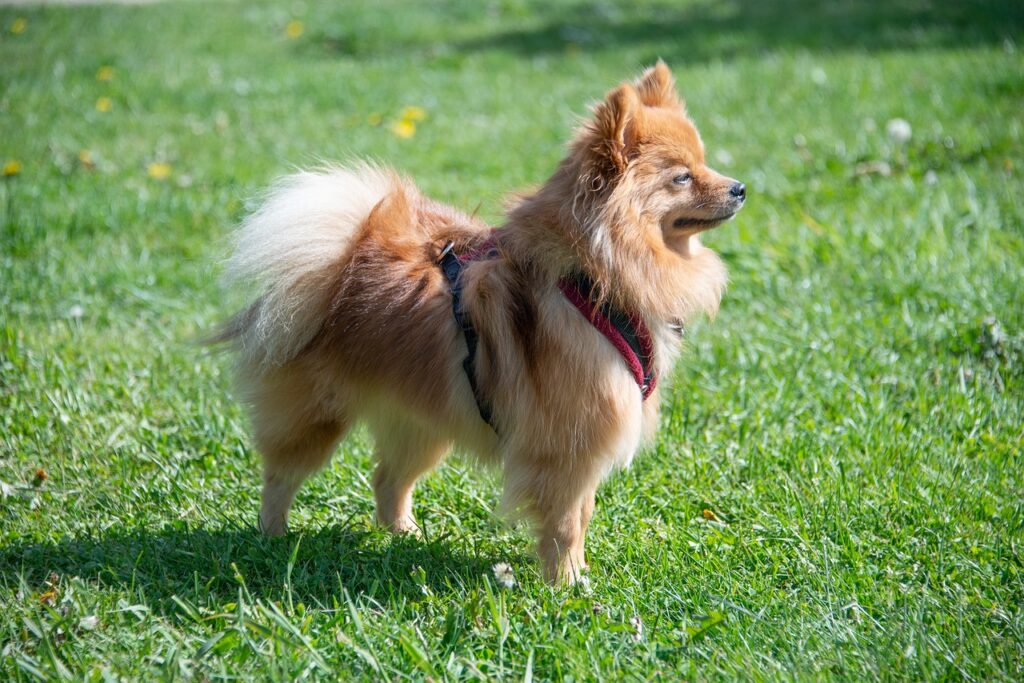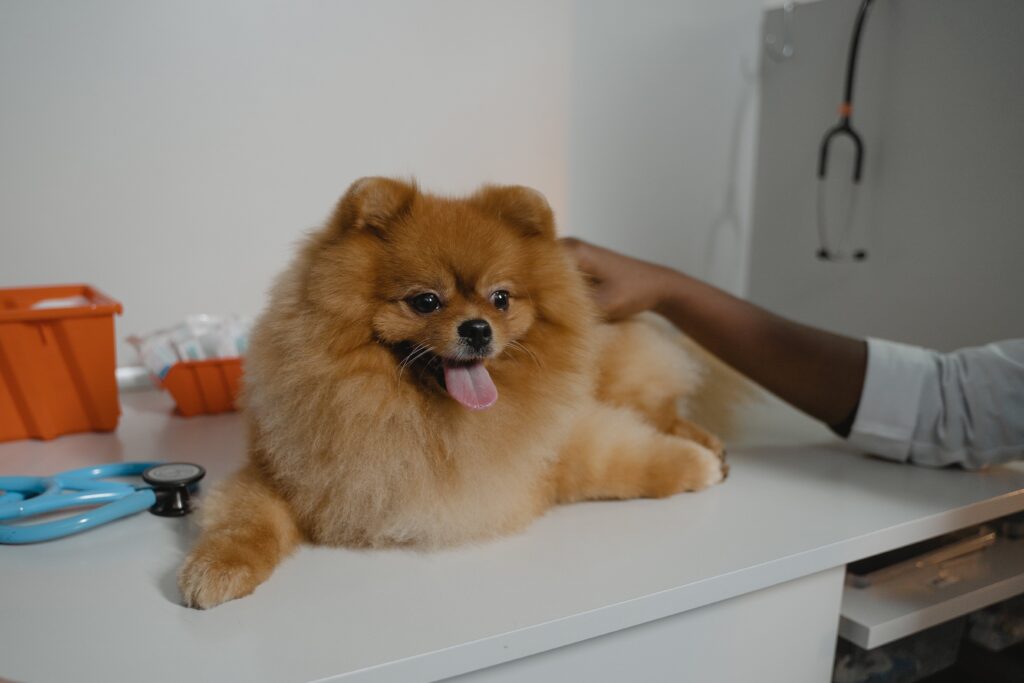
Pomeranians, a breed of toy dog known for their spunky yet affectionate nature, have become increasingly popular in recent years. But how much do you really know about these pint-sized pooches? In this blog post, we’ll delve into everything you need to know about the Pomeranian breed.
List
A General Overview of the Pomeranian Breed
Pomeranians, also affectionately termed as "Poms", are compact, toy-sized dogs, with their weight varying between 3 to 7 pounds, and height measuring between 8 to 12 inches tall. This adorable breed has its roots traced back to the Arctic region where they were initially harnessed as sled dogs. Over the centuries, Pomeranians have transitioned from being work dogs to beloved companion animals, renowned for their voluminous fur coat, expressive eyes, and vivacious personality.
What might surprise many is that, despite their diminutive size, Pomeranians have an energy level that is robust and lively. With their keen intelligence, these tiny creatures derive immense joy from learning new tricks, participating in brain-stimulating games and activities. However, potential owners should be aware of their strong-willed demeanor, which might sometimes veer towards stubbornness. Fortunately, with the application of suitable training techniques, this stubbornness can be tamed and channeled in a positive direction.
Known for their sprightly gait and luxurious double coat, Pomeranians make an impressive sight with their plumed tail arched over their back. They come in a variety of colors including white, black, brown, red, orange, cream, blue, sable, black and tan, spotted, brindle, plus combinations of those colors. One of the most endearing qualities of the breed is their alert and curious expression, a trait that hints at their high intelligence and eagerness to learn.
Overall, Pomeranians are friendly and outgoing. They make excellent companion animals and are known for their unyielding loyalty towards their owners. However, they are not ideal for households with very young children due to their small size and tendency to be snippy when mishandled. They are also known to bark quite a bit, and while this can be mitigated with training, it's something potential owners should be prepared for.
Understanding the Pomeranian breed in-depth, from their physical characteristics to their behavior, will ensure you are well-prepared to welcome this breed into your home. With the right care and commitment, a Pomeranian can be the perfect companion to add joy, laughter, and a whole lot of love to your life.

A Comprehensive Guide to Feeding Your Pomeranian
Nutritional balance is pivotal in maintaining your Pomeranian's health and energy levels. Feeding an adult Pomeranian involves offering them high-grade dry food, portioned into two meals per day. For Pomeranian puppies, smaller meals served frequently throughout the day are more beneficial.
Pomeranians, despite their small size, have a faster metabolism compared to larger dog breeds, necessitating a higher caloric intake relative to their body weight. Therefore, the diet you provide should be nutritionally rich, encompassing adequate amounts of protein, fiber, and healthy fats.
An important aspect to consider while feeding your Pomeranian is the risk of overfeeding. Given their small stature, Pomeranians are susceptible to obesity, which can pave the way for numerous health complications. Therefore, portion control is crucial in maintaining a healthy weight for your furry friend.
Pomeranians also have a reputation for being picky eaters. To combat this, you may want to introduce a variety of flavors and textures into their diet. However, always ensure that any new food is safe for canine consumption and does not contain any harmful ingredients.
Hydration is as essential as feeding. Always make sure your Pomeranian has access to clean, fresh water throughout the day. Keeping your Pom properly hydrated aids in digestion and helps maintain overall health.
The feeding regime you establish for your Pomeranian can significantly influence their health, energy levels, and overall quality of life. It is advisable to consult with your vet to establish a dietary plan that meets the specific needs of your Pomeranian. Your vet can guide you on the correct portion sizes, the best types of food, and how to introduce new foods safely.
Remember, a well-fed Pomeranian is a happy and healthy one. So, while the dietary requirements might seem extensive, the benefits that a balanced diet can provide your Pom are definitely worth it. Your dedication to providing the best diet for your Pomeranian will ensure they stay active, healthy, and happy for many years to come.
Training Your Pomeranian - Tips and Tricks
As we've previously mentioned, Pomeranians are blessed with intelligence, making them relatively straightforward to train. But like any other breed, they have their quirks. In the case of Pomeranians, it's their stubborn streak. But don't worry, with the right strategies, you can turn this trait into a positive one. Here are some handy tips for training your Pomeranian:
- Commence training as soon as possible - With any breed, the earlier you introduce training, the quicker your canine companion will adapt to its new lifestyle. With Pomeranians, starting early can also help curb their stubbornness.
- Embrace positive reinforcement - This training method uses rewards to encourage good behavior. Given a Pomeranian's love for praise and treats, this strategy can be highly effective. Every time your Pom exhibits a desired behavior, reward them with a treat, toy, or affectionate petting. This positive association will motivate them to repeat these behaviors.
- Consistency is key - When it comes to training Pomeranians, maintaining a consistent routine is crucial. By sticking to a regular training schedule, your Pom will become accustomed to their routine, making the process easier for both of you. Additionally, be patient during the training process. It might take some time, but rest assured, your Pomeranian will eventually get the hang of it.
- Stay firm, yet gentle - While it's essential to be consistent and assertive, remember to always stay gentle with your Pomeranian. These small dogs can be sensitive, and harsh methods could lead to fear and mistrust. Instead, guide your Pom with love and kindness, and you'll have a well-trained, loving companion in no time.
- Turn training into a game - Pomeranians are playful by nature, and they love engaging in fun activities. Incorporate training into playtime and make it fun. This can help maintain your Pom's interest and make them more receptive to learning new things.
These strategies are a good starting point when it comes to training your Pomeranian. Remember, every dog is unique, and what works for one might not work for another. Don't hesitate to consult with a professional dog trainer or behaviorist if you need more personalized advice. Training a Pomeranian, or any dog for that matter, requires time, patience, and understanding, but the results are more than worth the effort.

Grooming Your Pomeranian – A Comprehensive Approach
A crucial aspect of caring for your Pomeranian is understanding their grooming needs. Their fluffy double coat, a standout feature of the breed, is also a magnet for dirt and tangles. Hence, it's important to establish a regular grooming routine to keep their coat healthy and vibrant.
Brushing your Pomeranian's coat at least once a week is recommended. This will not only remove any loose hair and prevent matting but also distribute the natural oils throughout their coat, keeping it shiny and smooth. A slicker brush or a comb with fine teeth is ideal for this job. Remember, Pomeranians have a sensitive skin, so always brush gently to avoid causing any discomfort.
When it comes to bathing your Pomeranian, you'll want to strike a balance. Over-bathing can strip the coat of its natural oils, causing it to become dry and brittle. On the other hand, under-bathing can lead to a buildup of dirt and oils, which can cause skin issues. As a general rule, bathing your Pom every one to two months should be sufficient. But, of course, if they're particularly dirty after a day of fun and games, an additional bath won't harm. Use a dog-specific shampoo and conditioner for the best results.
Apart from caring for their coat, your Pomeranian's grooming routine should also cover other aspects like dental hygiene, nail care, and ear cleaning. Brushing your Pom's teeth regularly with a dog-friendly toothpaste can help prevent dental diseases, which are common in the breed. Trim their nails every few weeks to keep them at a comfortable length. And, don't forget to check and clean their ears regularly to prevent infections.
Grooming is also a great opportunity to bond with your Pomeranian. These little dogs thrive on attention and will love the extra care you give them during grooming sessions. It's also a good time to check for any abnormal signs such as skin irritation, lumps, or parasites, which can help you catch potential health issues early.
Always remember, grooming your Pomeranian isn't just about keeping them looking their best, it's also about keeping them feeling their best. Regular grooming will not only keep your Pomeranian looking adorable but also contribute to their overall health and well-being.

Common Health Issues in Pomeranians
Померанці, як правило, є міцними та енергійними породами, проте, як і всі породи, вони схильні до певних станів здоров’я. Для Померанців досить поширеними є захворювання зубів. Це часто пов’язано з маленьким розміром їхнього рота, що може призвести до переповнення зубів, утворення зубного нальоту та, врешті-решт, до пародонтозу. Регулярні стоматологічні огляди та щоденне чищення зубів можуть допомогти вирішити цю проблему.
Another prevalent health concern for Pomeranians is obesity. Given their small stature and their tendency to lead sedentary lifestyles, Pomeranians are at a high risk for weight gain. This can lead to a myriad of health complications such as diabetes and heart disease. As previously discussed, a balanced diet and regular exercise can help maintain a healthy weight and prevent obesity in Pomeranians.
Pomeranians may also be prone to hypothyroidism, a condition characterized by an underactive thyroid. Symptoms can include lethargy, unexplained weight gain, and a dull coat. If you notice these symptoms, consult your veterinarian who can perform a simple blood test to confirm the condition.
Luxating patella, also known as a dislocated kneecap, is another health issue that Pomeranians may encounter. This condition can lead to lameness and can be painful for your Pom. Regular veterinary exams can help detect luxating patella early and treatment options can be discussed.
One condition unique to small breeds, including Pomeranians, is Tracheal Collapse. This condition, where the trachea partially collapses or becomes constricted, can cause a range of respiratory problems. Symptoms to look out for include a harsh, dry cough, difficulty in breathing, and a reduced ability to exercise. If you notice these symptoms, it's crucial to seek veterinary care immediately.
While these health concerns may seem daunting, it's important to remember that with regular veterinary check-ups, many of these conditions can be detected early and managed effectively. And always remember, the lifestyle you provide your Pomeranian, including diet, exercise, and mental stimulation, plays a significant role in their overall health and longevity. As a responsible Pomeranian owner, prioritizing your pup's health will lead to a happier, healthier, and longer life for your furry friend.
